Ten writers. Two facilitators. Ten days. One piano. An historic mansion. One residency. That was the recipe in May of 2018 for Spalding University’s MFA Creative Writing Program Musical Theatre Workshop. The workshop was an exception to the standard cross-genre disciplines of the curriculum. Every semester at Spalding, workshops are held in playwrighting, screenwriting, fiction, creative nonfiction, poetry and children’s and young adult literature, but Musical Theatre is not on the customary rotation of opportunities. In order for Musical Theatre to be a workshop offering, playwrights, screenwriters and scribes from other disciplines had to forego their usual nests. Not only did the student demand for a Musical Theatre Workshop have to be significant, but a qualified writing team had to be available to lead the charge. Once in every few semesters, the stars align to make it all happen. In Spring of 2018 the sky was sparkling, and I was one of the providential student writers fortunate enough to soak it all in.
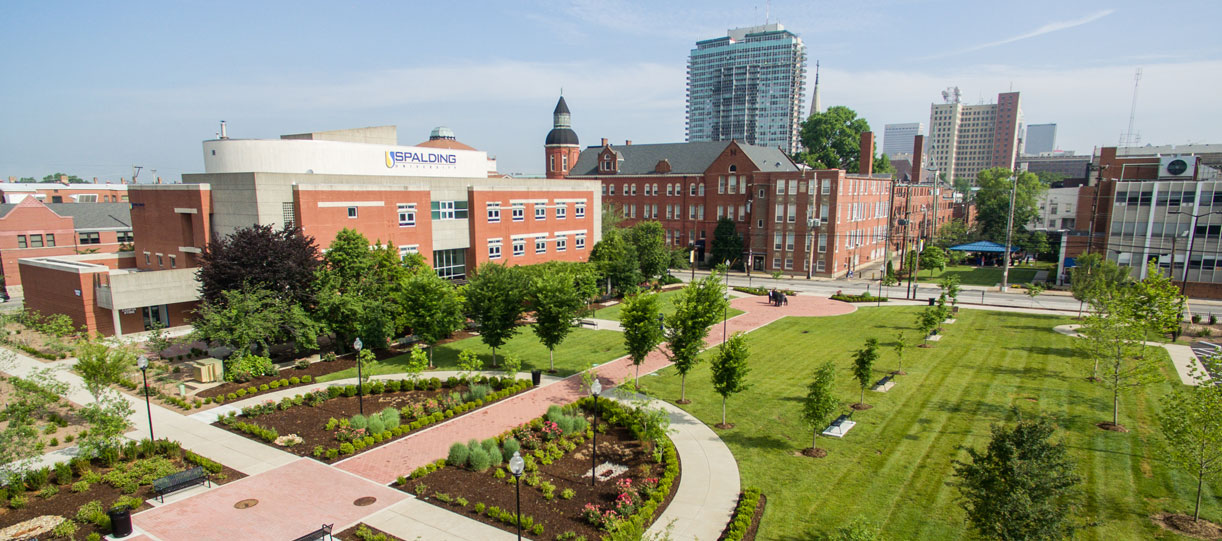
Spalding University, located in Louisville, Kentucky is one of the most acclaimed Low-Residency Creative Writing Programs in the country. Its proximity to Actors Theatre of Louisville and Kentucky Center for the Performing Arts is lagniappe. Once referred to as The Little Creative Writing Program That Could, for almost 20 years it has produced trained writers of every genre whose works have been published, produced and awarded both nationally and internationally. Beginning each semester students convene for intensive residency periods on this historic campus, then disperse, each assigned to a faculty mentor who guides them in their curriculum for the remainder of the semester. The residencies are overflowing with classes, seminars, generative assignments and cross genre examinations. The remainder of the semester combines scholarly investigation and creative writing led by the faculty mentors. The faculty/student mentorship is a signature characteristic of the program and it provides each student with professional relationships that transcend the four semesters of graduate school.
The handful of students who were fortunate enough to claim spots in this workshop were dramatic writers and one poet either already engaged in Musical Theatre projects or who simply wanted to better understand how to make that leap. Because of the workshop’s notoriety, by May of 2018 a number of students had been registered and waitlisted for two semesters. Clamoring for a spot, even eligible alums were tossing their names in the hat to include their musical pieces that were in development. Each had submitted writing samples and synopses that may or may not have yet included lyrics and scores but had at minimum served as seedlings for musical theatre pieces. Fortunately, a writing pair of the highest caliber became available. At the ten-day residency students gathered under the tutelage of the award-winning musical team, Charlie Schulman and Michael Roberts. This duo was a big score for the MFAers, for they are no slouches. For the students, it was game on.
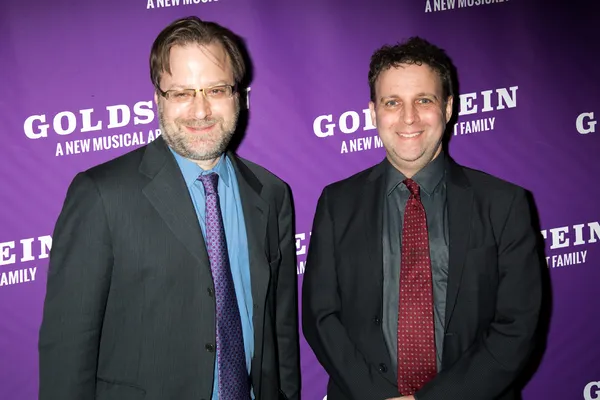
Charlie Schulman and Michael Roberts
Heading into residency, Schulman and Roberts were just emerging from a run of their newest Off -Broadway production, Goldstein. Schulman, a bookwriter and Roberts, a composer/lyricist have collaborated before resulting in two Off-Broadway productions; The Fartist, winner of Best Musical at New York Fringe 2006 and Goldstein which earned them a nomination for Best New Musical 2018 by The Off-Broadway Alliance Awards. They are a powerhouse of a team that provided the perfect balance of academic, creative and practical leadership, for in addition to writing and composing they both claim teaching slots at NYU (Schulman as faculty and Roberts as Guest Lecturer) and served as producers for their most recent New York production. Schulman is on core faculty at Spalding while Roberts served as Guest Faculty for the residency. So accustomed to working together, the two glided through the workshop like Ginger Rogers and Fred Astaire, anticipating each other’s moves and observations, offering each other space for their most vigorous solos and generously providing support for the other’s individual strengths as well as occasionally taking it to the limits in a scholarly pas de deux.
As an acclaimed playwright (The Great Man, The Birthday Present) and librettist, Schulman understands dramatic structure like no other. Although his relationships with his post graduate students may go dormant for periods, they remain perpetually on speed dial, for Charlie recognizes the distinctiveness of writing for musical theatre.
“My playwriting and screenwriting workshops both inform and differ from the musical theater workshop Michael and I offer at Spalding. Writing the book for a musical is more collaborative than the writing of a play or screenplay. In musicals, the book-writer, lyricist and composer are engaging in an ongoing conversation: the work keeps changing as each individual contribution requires modification and accommodation from the other contributors. The scenes in a musical need to set up, contextualize, and serve as a counterpoint to the songs in a way that builds dramatic tension and allows the songs to soar and resonate without creating redundancy. I consider writing the book for a musical to be a hybrid of sorts of playwriting and screenwriting.”
Roberts (Golf: The Musical, My American Family), who claims pedigrees in musical composition as well as lyrics, spends instruction time on the relationship between all three departments in making a musical (book/lyrics/music). He prodded the students to consider how, within our lyrics, we could signal a composer regarding the rhythms, tenor and tones of a melody. For me, this was a light bulb moment as a student. Appreciating that words such as “soaring,” or “twinkle” are messages to the composer as well as the audience opened a door for me as a lyricist. Additionally, Michael challenged us to analyze our dialogue to find scenes that could and should be turned into songs. Happily, he found the Spalding environment to be the perfect response to the grind of New York.
“For me, being a visiting faculty member at Spalding has created a near-perfect balance between the New York professional theater life and the world of academia. By spending most of my time working on Broadway and Off-Broadway shows in New York, I have the great fortune to work with the leading creators in musical theater. This, I believe, helps my writing students greatly, as I can relate how professional dramatic writing works in the highest professional setting. At the same time, at Spalding, I can work closely with my students on the art and craft of musical theater writing, without the pressures and distractions of New York commercial theater. I always try to bring an inspiring and comfortable balance between the artistic and practical to all my teaching at Spalding.”
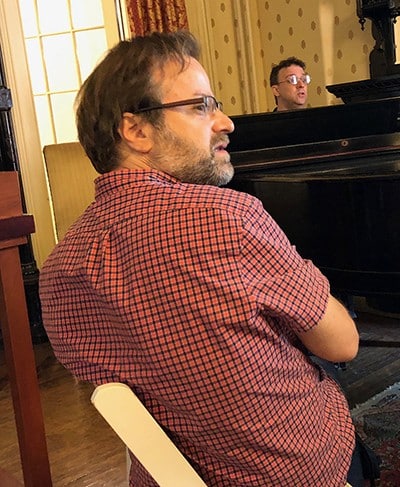
Spalding may have an insider advantage on the team of Schulman and Roberts, but they are not exclusive in their enthusiasm for the two, who will be featured on the panel Making a Small Musical: From Page to Stage with other Musical Theater writers and producers at the South Eastern Theatre Conference on March 1 in Knoxville, Tennessee.
Students who participated in the Spalding MFA workshop benefited in a host of ways and their progress following it illustrates that. Holly Baldwin, a dramatic writer who is in the home stretch of the MFA program, recognizes the benefits of the experience.
“The Musical Theatre Workshop provided me with tools and skills around the art of song lyricism that I did not have prior. I learned a lot about how to integrate the lyrics into dramatic elements and dialogue in a way that is more natural and effective than before.”
Ann Eskridge, an MFA alum had waited patiently for the Musical Theatre Workshop offering to present itself before deciding whether or not to abandon a piece she had started almost a decade earlier but never finished.
“Both Charlie and Michael were helpful. I don’t consider myself a lyricist, but Michael’s template and explanation helped me to craft the songs for my musical, Satin Doll. The musical workshop was my last-ditch effort to salvage this piece. It had lain dormant for ten years. I took this workshop to make up my mind whether to continue or shuck the piece. Afterwards I was so inspired, I came home and wrote 6 more songs and found a wonderful composer, Alton James, whom I have been working with for the last several months. We will be finished by February and having a script read with music in May. We will be recording it live.”
Truth be told, the collective atmosphere of the Spalding residencies is akin to that of a relay race. It is exciting, exhausting, supportive and euphoric. Come to think of it, it feels a lot like the run of a musical. Those of us who earned our chops at Spalding would probably have garnered valuable lessons at a different program, but it is doubtful that those lessons would have surpassed those that Spalding offered. The Musical Theatre Workshop that Schulman and Roberts provided was as exceptional as the artists who led it. And really, who could ask for anything more?
For more information about the Spalding MFA program, visit https://www.spalding.edu/master-of-fine-arts-in-writing/low-residency/ or https://spaldingmfablog.wordpress.com
Donna Gay Anderson is a Louisiana playwright whose works include An Act of Charity, High and Mighty, Shrimp and Crab and Customs and Immigration. She has had productions and readings in New York, North Carolina, Louisiana, Chicago and Louisville, and has served as a contributing writer for Dramatists Magazine. She is founder of The Neighborhood Book Club, a weekly literary gathering for young girls. She holds degrees from Spalding University, The National Shakespeare Conservatory and Southeastern Louisiana University. She and her husband Tom live in a swamp. www.donnagayanderson.com

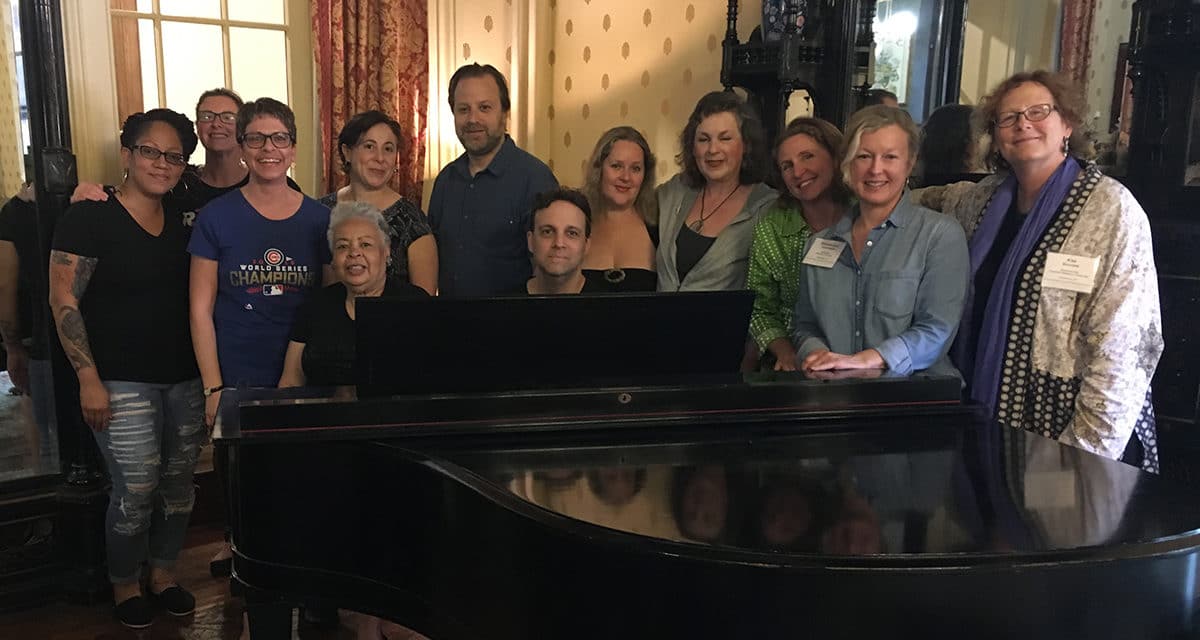
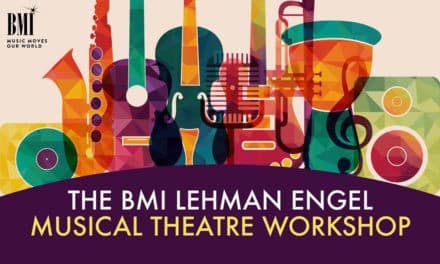
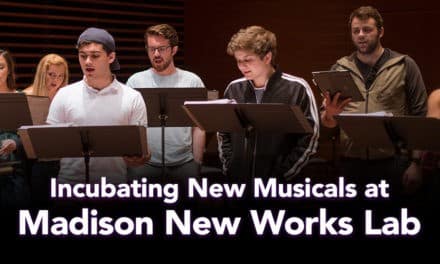
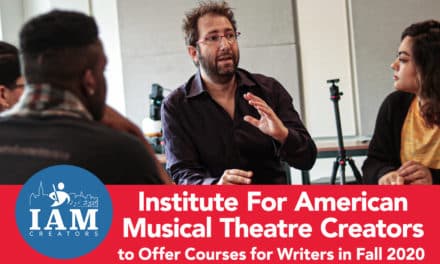

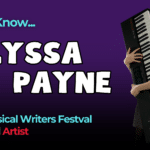


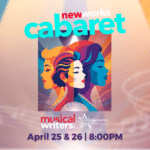






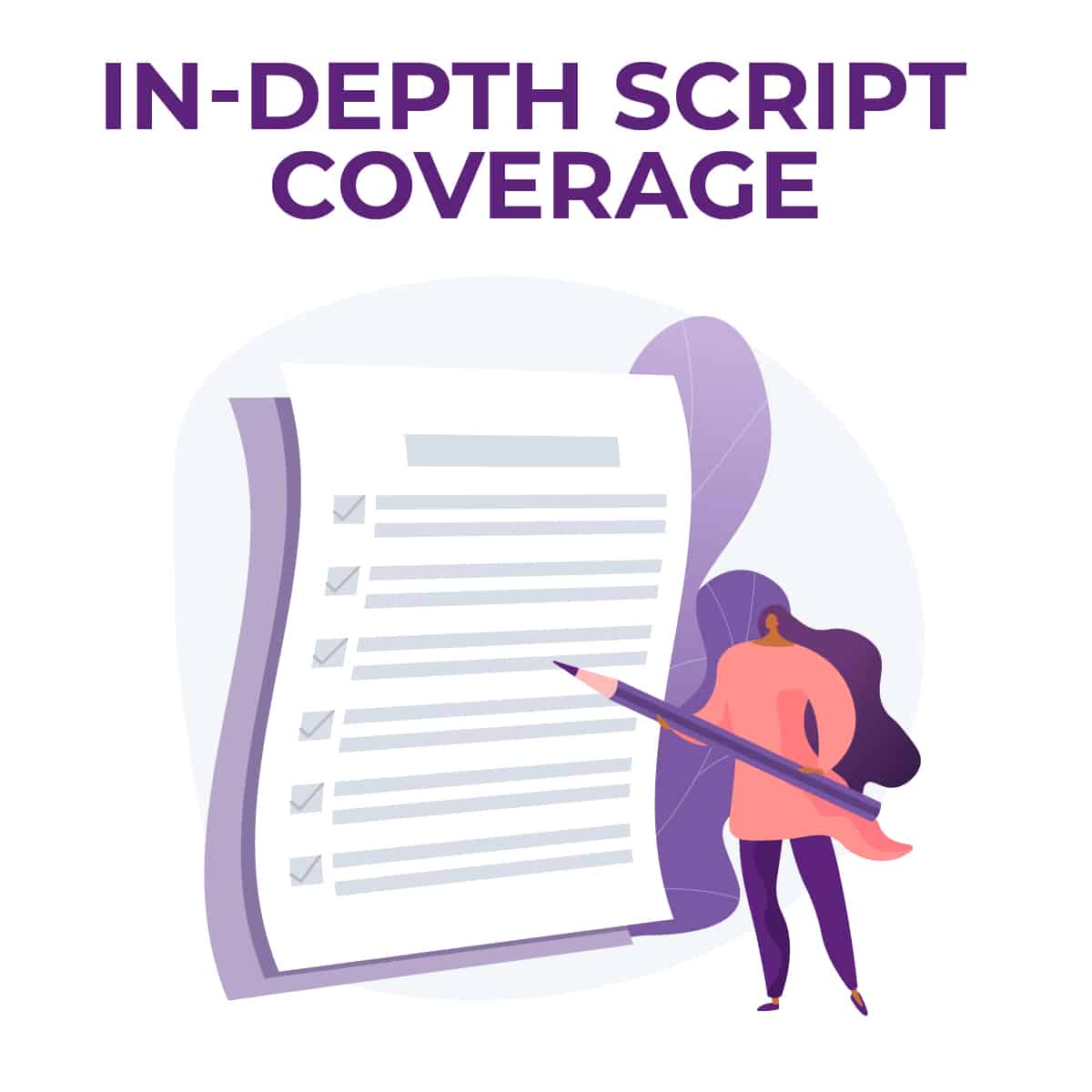

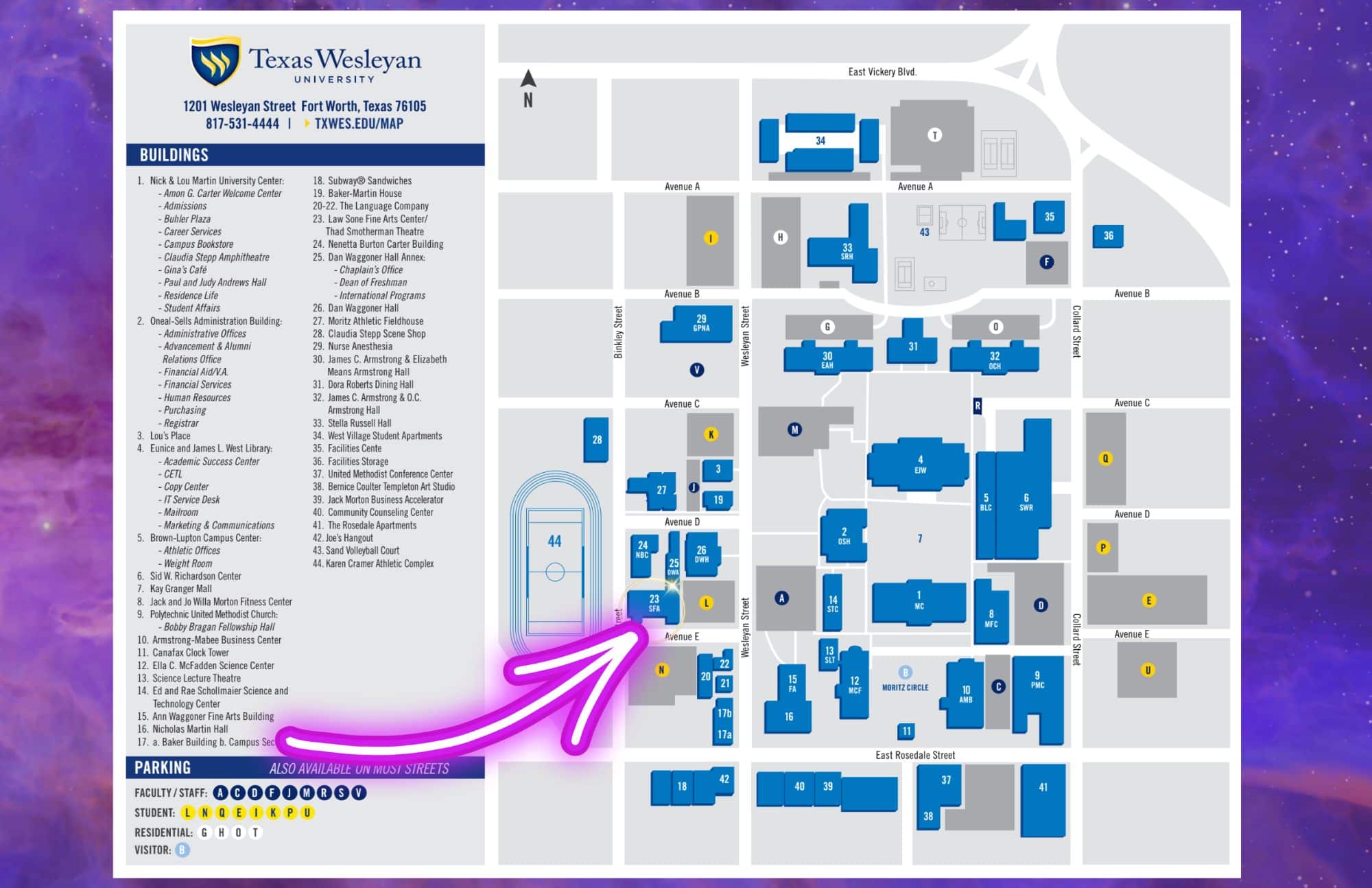
Trackbacks/Pingbacks